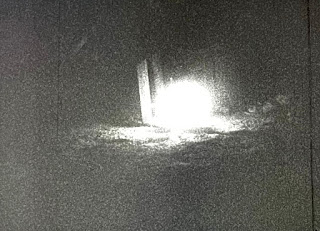Revolutions Can't Be Televised
Bushman picks up where David Schickele's Give Me a Riddle left off a few years earlier; it's 1971 now. The self-proclaimed Nigerian "bushman," Paul, has made his way to the States, San Jose environs to be exact. The direct cinema method of Give Me a Riddle has been jettisoned in place of a mixture between the documentary style and a raw narrative (sometimes handheld, other times locked) — like a Mekas brother film the results dutifully expand the world beyond the shot and diegetic audio.
Paul learns quickly and harshly that the US isn't what the PanAm travel brochures depict or portray. The bartender Paul takes up with is a piece of liberated gyrating pain-in-the-ass, for one; additionally every surface is paved over with concrete. Work isn't easy to come by. Student riots sweep Paul up in their rush, and the cops cuff him to a basement urinal and ask whether a (planted) makeshift bomb belongs to him, and interrogate him on his political anarchist, goals. No cameras (handheld or bodycam) only sound over an extended still shot of two urinals side by side. Caught in the nightmare system, Paul is sentenced to five years in prison before being released and deported back to Nigeria. Anything resembling happiness will play out in life in the home country. •





















































